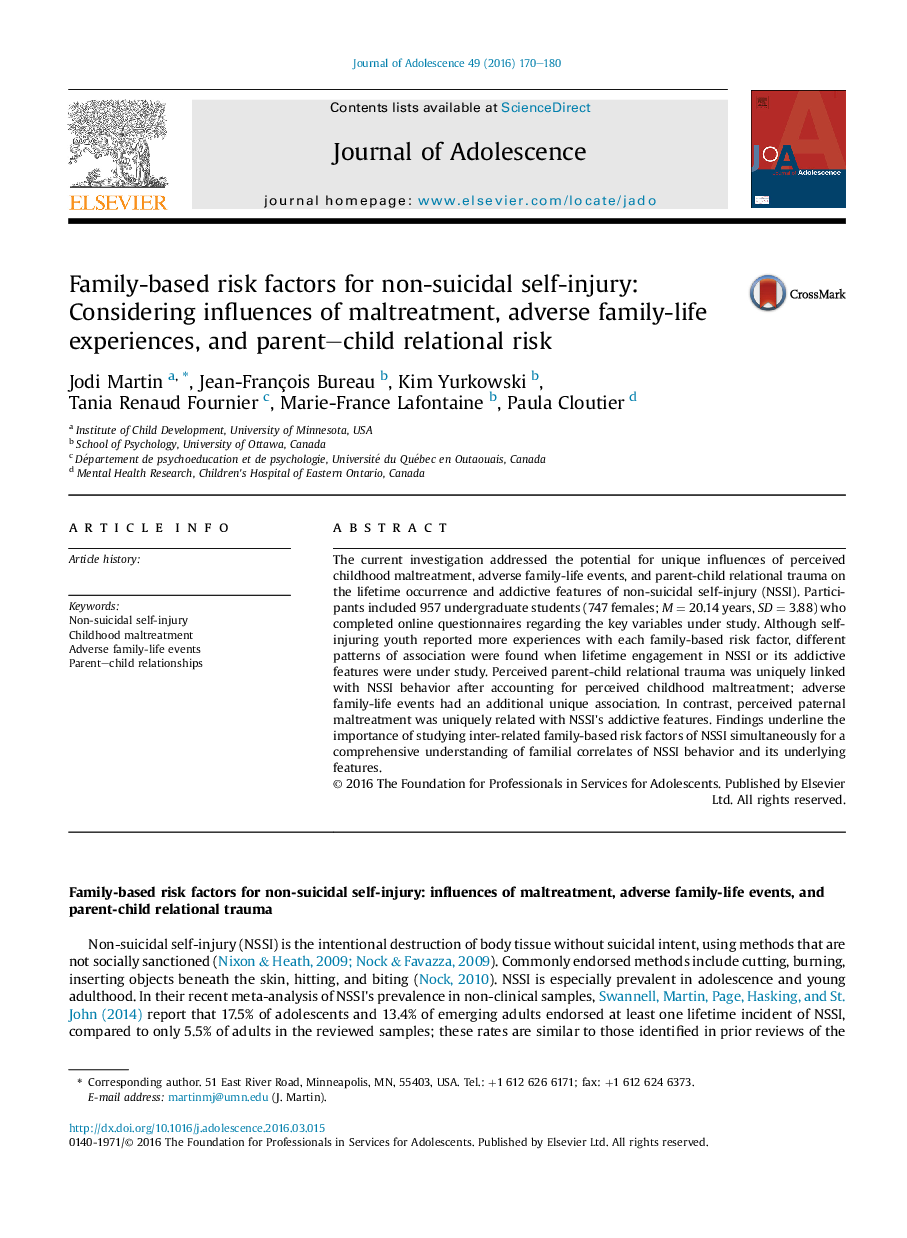| Article ID | Journal | Published Year | Pages | File Type |
|---|---|---|---|---|
| 7241202 | Journal of Adolescence | 2016 | 11 Pages |
Abstract
The current investigation addressed the potential for unique influences of perceived childhood maltreatment, adverse family-life events, and parent-child relational trauma on the lifetime occurrence and addictive features of non-suicidal self-injury (NSSI). Participants included 957 undergraduate students (747 females; MÂ =Â 20.14 years, SDÂ =Â 3.88) who completed online questionnaires regarding the key variables under study. Although self-injuring youth reported more experiences with each family-based risk factor, different patterns of association were found when lifetime engagement in NSSI or its addictive features were under study. Perceived parent-child relational trauma was uniquely linked with NSSI behavior after accounting for perceived childhood maltreatment; adverse family-life events had an additional unique association. In contrast, perceived paternal maltreatment was uniquely related with NSSI's addictive features. Findings underline the importance of studying inter-related family-based risk factors of NSSI simultaneously for a comprehensive understanding of familial correlates of NSSI behavior and its underlying features.
Related Topics
Health Sciences
Medicine and Dentistry
Public Health and Health Policy
Authors
Jodi Martin, Jean-François Bureau, Kim Yurkowski, Tania Renaud Fournier, Marie-France Lafontaine, Paula Cloutier,
